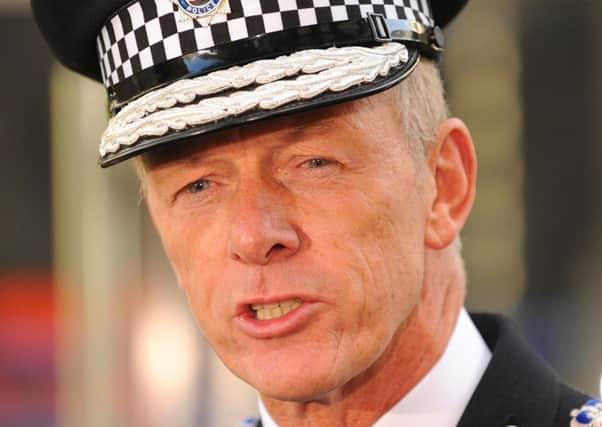Leaders: Metropolitan Police | Glasgow rickshaws


And when evidence app-ears that those fears are warranted, suspicions start turning to fact.
This now appears to be happening with the Metropolitan Police Service. An officer who gave testimony that he witnessed a row between Andrew Mitchell, then a Cabinet minister, and other officers at the gates of Downing Street, has now admitted he was not there at all and made up his account.
Advertisement
Hide AdAdvertisement
Hide AdThis comes a day after an inquest into the police shooting of Mark Duggan, a 21-year-old black youth in Tottenham, north London, in summer 2011, which sparked rioting in London and other English cities. The inquest concluded Mr Duggan had been lawfully killed.
The family strongly disagree, contending that while Mr Duggan may have had a minor criminal record, he was not one of the country’s most violent gangsters, as police said in court. They still do not understand why police thought killing Mr Duggan was justifiable, given it is accepted he was unarmed when he was shot, and clearly believe that a police cover-up has occurred.
That there was a cover-up in Mr Mitchell’s case is now self-evident. One officer has now admitted to a criminal court that he lied. According to the Police Federation, this single admission by one officer should not undermine confidence in the police.
But the Metropolitan Police Commissioner, Sir Bernard Hogan-Howe, knows that it will, particularly as another seven officers face disciplinary action over their part in accounts of a 45-second altercation between Mr Mitchell and three policemen guarding the gates of Downing Street. And because the Met is such a high-profile force, it will affect confidence in all police forces.
The former minister, unjustifiably forced to resign, now knows what the sharp end of policing feels like to youths, particularly black and Asian youths, in London. According to reporting in the boroughs where rioting took place, they feel their rights to be non-existent and they have no access to justice.
Mr Mitchell was fortunate in having not just the rights, but the resources, to challenge the police accounts, but it now leaves Sir Bernard in a difficult place. He has made efforts to reform his police force and has to a limited extent succeeded in curbing excessive use of stop-and-search powers against black and Asian young people.
But clearly the reforms have not gone far enough. The Metropolitan Police appears out of touch with the communities it serves and the “plebgate” affair suggests some officers think they are a law unto themselves. Sir Bernard’s reforms begin to look more cosmetic than substantial. He should resign.
Safety first– if it moves, best ban it
Public safety is a matter of prime concern and it is good to see Glasgow City Council is taking its duties seriously. The city fathers have yet to see evidence that pedicabs – the rickshaw-like bicycle-powered means of transport – are safe, so they are refusing to license their use on city streets.
Advertisement
Hide AdAdvertisement
Hide AdQuite right. Arguments that these contrivances are in regular use in Edinburgh, London, Paris, and many other cities are of no consequence at all. What is deemed to be safe in Edinburgh may well be extremely dangerous in Glasgow.
Indeed, are they going far enough? They should turn their attention to the egregious use of bicycles, which is ballooning out of control. You just have to look at one of these contraptions – no side-impact panels, anti-roll bars, or airbags – to know that they are obviously an unsafe way to move about a city. Banning their use would immediately reduce accidents.
Even more appallingly, mothers are allowed to push infants around streets in flimsy little buggies which have absolutely no protection at all. Disturbingly, many of these devices have no brakes, rear-view mirrors, or indicators to show that an abrupt change of direction may be intended. People are even permitted to start using them without any training at all. They are a tragedy waiting to happen.
And what about walking? Legs, as many people know to their cost, can be a completely unreliable means of transport, becoming uncontrollably directionless under certain circumstances not uncommon on Scotland’s streets. The demands of safety must come first. If these are the grounds for banning pedicabs, they have to ban everything.